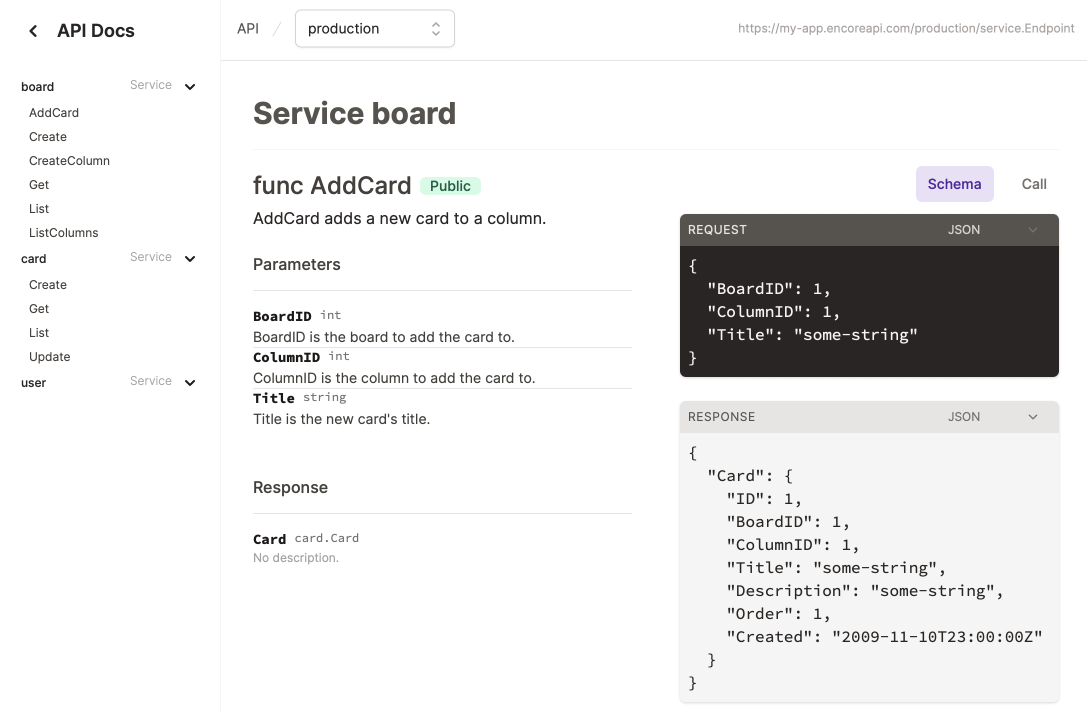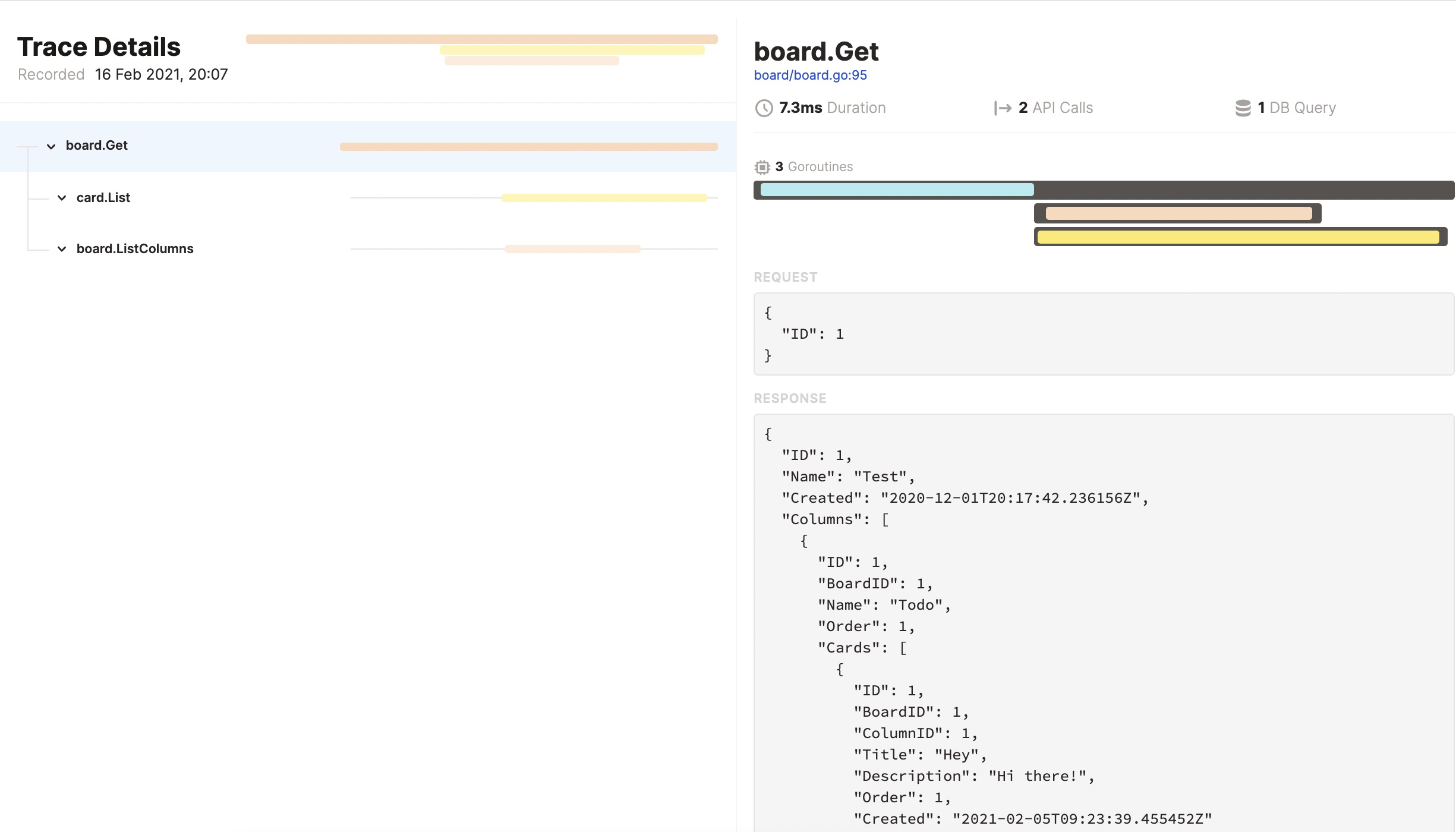 Directories
¶
Directories
¶
| Path | Synopsis |
|---|---|
|
cli
|
|
|
cmd/git-remote-encore
Command git-remote-encore provides a gitremote helper for interacting with Encore's git hosting without SSH keys, by piggybacking on Encore's auth tokens.
|
Command git-remote-encore provides a gitremote helper for interacting with Encore's git hosting without SSH keys, by piggybacking on Encore's auth tokens. |
|
daemon
Package daemon implements the Encore daemon gRPC server.
|
Package daemon implements the Encore daemon gRPC server. |
|
daemon/dash
Package dash serves the Encore Developer Dashboard.
|
Package dash serves the Encore Developer Dashboard. |
|
daemon/internal/appfile
Package appfile reads and writes encore.app files.
|
Package appfile reads and writes encore.app files. |
|
daemon/internal/manifest
Package manifest reads and writes Encore app manifests.
|
Package manifest reads and writes Encore app manifests. |
|
daemon/internal/sym
Package sym parses symbol tables from Go binaries.
|
Package sym parses symbol tables from Go binaries. |
|
daemon/run
Package run starts and tracks running Encore applications.
|
Package run starts and tracks running Encore applications. |
|
daemon/secret
Package secret fetches and caches development secrets for Encore apps.
|
Package secret fetches and caches development secrets for Encore apps. |
|
daemon/sqldb
Package sqldb runs and manages connections for Encore applications.
|
Package sqldb runs and manages connections for Encore applications. |
|
internal/browser
Package browser provides utilities for interacting with users' browsers.
|
Package browser provides utilities for interacting with users' browsers. |
|
internal/codegen
Package codegen generates code for use with Encore apps.
|
Package codegen generates code for use with Encore apps. |
|
internal/conf
Package conf writes and reads the Encore configuration file for the user.
|
Package conf writes and reads the Encore configuration file for the user. |
|
internal/env
Package env answers where Encore tools and resources are located.
|
Package env answers where Encore tools and resources are located. |
|
internal/gosym
Package gosym implements access to the Go symbol and line number tables embedded in Go binaries generated by the gc compilers.
|
Package gosym implements access to the Go symbol and line number tables embedded in Go binaries generated by the gc compilers. |
|
internal/jsonrpc2
Package jsonrpc2 is a minimal implementation of the JSON RPC 2 spec.
|
Package jsonrpc2 is a minimal implementation of the JSON RPC 2 spec. |
|
internal/jsonrpc2/servertest
Package servertest provides utilities for running tests against a remote LSP server.
|
Package servertest provides utilities for running tests against a remote LSP server. |
|
internal/login
Package login handles login and authentication with Encore's platform.
|
Package login handles login and authentication with Encore's platform. |
|
internal/wgtunnel
Package wgtunnel sets up and configures Encore's WireGuard tunnel for authenticating against private environments.
|
Package wgtunnel sets up and configures Encore's WireGuard tunnel for authenticating against private environments. |
|
internal/xos
Package xos provides cross-platform helper functions.
|
Package xos provides cross-platform helper functions. |
|
Package parser parses Encore applications into an Encore Syntax Tree (EST).
|
Package parser parses Encore applications into an Encore Syntax Tree (EST). |
|
est
Package est provides the Encore Syntax Tree (EST).
|
Package est provides the Encore Syntax Tree (EST). |
|
paths
Package paths parses API paths.
|
Package paths parses API paths. |
|
pkg
|
|
|
pgproxy/internal/pgio
Package pgio is a low-level toolkit building messages in the PostgreSQL wire protocol.
|
Package pgio is a low-level toolkit building messages in the PostgreSQL wire protocol. |
Click to show internal directories.
Click to hide internal directories.


